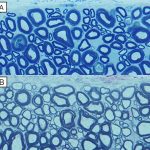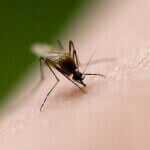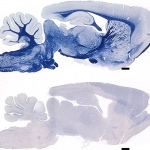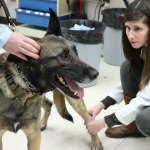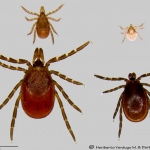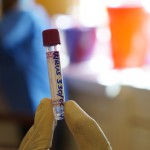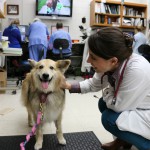Tag School of Veterinary Medicine
New Faculty Focus: Fernando J. Marqués
Besides serving as a professor of large animal internal medicine, Marqués is a show jumping rider and instructor.
Shelter Medicine, WVDL assist Dane County shelter with dog illness
“The shelter was on top of this very quickly,” says clinical assistant professor Sandra Newbury, who has been leading the response.
Mosquito-spread encephalitis found in Wisconsin horses
A wet and warm summer — much like last year, when EEE virus infected 18 horses in 11 Wisconsin counties — makes for good mosquito habitat and conditions conducive to the spread of viruses like EEE and West Nile virus.
Study reveals interplay of an African bat, a parasite and a virus
The role of bat parasites in maintaining chains of viral infection is little studied, and the new study serves up some intriguing insights into how viruses co-opt parasites to help do the dirty work of disease transmission.
Natural experiment, dogged investigation, yield clue to devastating neurological disease
After a 29-year quest, Ian Duncan, a professor of veterinary medicine at the University of Wisconsin–Madison, has finally pinpointed the cause of a serious neurologic disease in a colony of rats.
Health care is for the police dogs of Wisconsin, too
“It helped us save his career,” says a Jefferson County sheriff's deputy. “He’s bounced back to a point where he seems better than he was as a puppy.”
CDC awards $10 million for insect borne disease center
The Centers for Disease Control and Prevention (CDC) has awarded $10 million to a consortium of Midwestern universities to establish a new research and training program to stem the spread of disease carried by vectors like ticks and mosquitoes.
Boundless Together, Part 3
The third of four new commercials about UW–Madison will soon premier during a Badger football game. Learn more about the projects highlighted in the latest spot.
Study redefines role of estrogen in cervical cancer
Scientists have prior evidence that the hormone estrogen is a major driver in the growth of cervical cancer, but a new study examining genetic profiles of 128 clinical cases reached a surprising conclusion: Estrogen receptors all but vanish in cervical cancer tumors.


